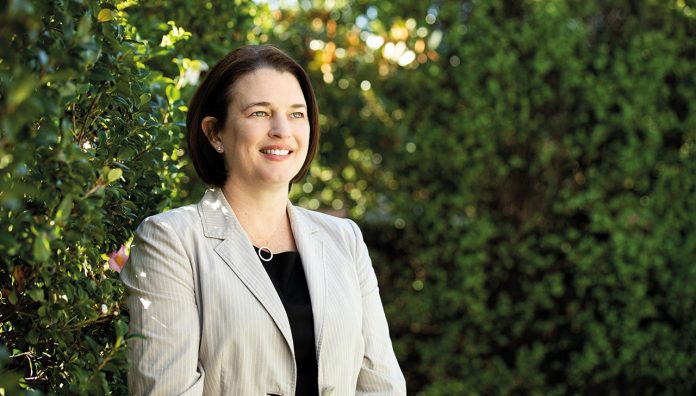From compounding to COVID-19, Amanda Fairjones BPharm Hons AACPA, MPS can get answers for all your member queries.
Describe your work and the tasks involved on a typical day.
As a member of the PSA membership team, I help answer queries that may be practice related, or ethical, technical, regulatory or registration questions. My priority each day is to answer telephone calls and emails from members – often straight away, but sometimes the questions are more difficult and require further research. The PSA employs a wide variety of pharmacists and other professionals with expertise in different areas who can assist me when needed.
What other roles have you held that make you an ideal person to provide practice advice?
Most of my career to date has been spent in private hospital pharmacy. As the Director of Pharmacy for a large surgical hospital for 10 years and, more recently, in two small private mental health facilities, I have both experience and knowledge to answer member queries. I’ve also had experience as a pharmacy owner and in community pharmacy and hold accreditation for Medication Management Review Services.
What does your role involve?
Providing advice to PSA members throughout the COVID-19 pandemic has been the most interesting aspect of my role so far. I started with PSA in March 2020 – at the beginning of the pandemic – and, like all pharmacists, had to quickly adjust to the rapidly changing pharmacy landscape. Colleagues were facing challenges never encountered before, and information and legislation was changing rapidly. Members relied on PSA for professional, up-to-date advice.
What are the strongest member concerns at present?
The most common concern is the coronavirus and resulting changes to practice. Members have been particularly concerned and are asking questions about digital prescriptions. The new legislation for this was introduced on a state-by-state basis, which caused confusion. Digital prescriptions has meant pharmacies must change process and engage with prescribers about retaining original prescriptions – which has provided challenges.
Members interested in diversifying their role often ask about further education. Many hope to expand their knowledge and I have provided them with information on becoming MMR-accredited, a diabetes educator or on training as a general practice pharmacist.
What have you learnt about pharmacy practice in the role?
Members often call the advice line for further information or interpretation of pharmacy legislation. Providing advice nationally has helped me learn about pharmacy practice across all states and territories. This has assisted me to become more familiar with the differences in legislation and practice guidelines for all jurisdictions.
The role has also expanded my knowledge around immunisation. Many pharmacists train to become qualified immunisers with PSA, and this role is constantly evolving. Members often call to confirm they are informed in relation to regulatory and training requirements.
How is PSA helping support members?
PSA is interested to hear from members about any issues, questions or ideas. Members are able to ask PSA for professional practice support and can contribute to PSA policies and advocacy issues. Information and feedback received from members via telephone, email or other means is collated and reviewed across the organisation – particularly during the height of the COVID-19 restrictions.
Further resources
Pharmacist to pharmacist advice line (members only): 1300 369 772 8.30 am–5 pm (EST) weekdays.



 Professor Margie Danchin[/caption]
Professor Margie Danchin[/caption]

 Dr Peter Tenni[/caption]
Dr Peter Tenni[/caption]
 How should we deprescribe gabapentinoids, according to the Maudsley Deprescribing Guidelines[/caption]
How should we deprescribe gabapentinoids, according to the Maudsley Deprescribing Guidelines[/caption]



 Pharmacists have always prescribed, but they have the potential to prescribe much more
Pharmacists have always prescribed, but they have the potential to prescribe much more






